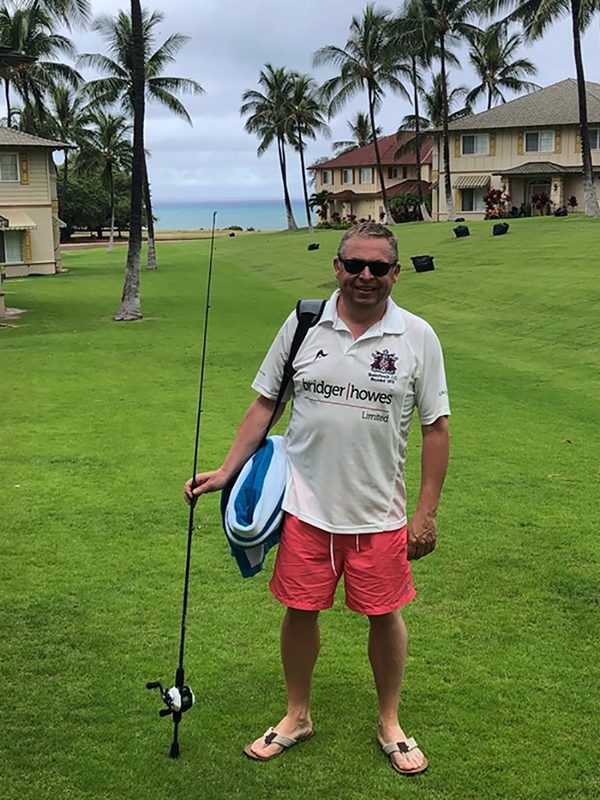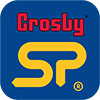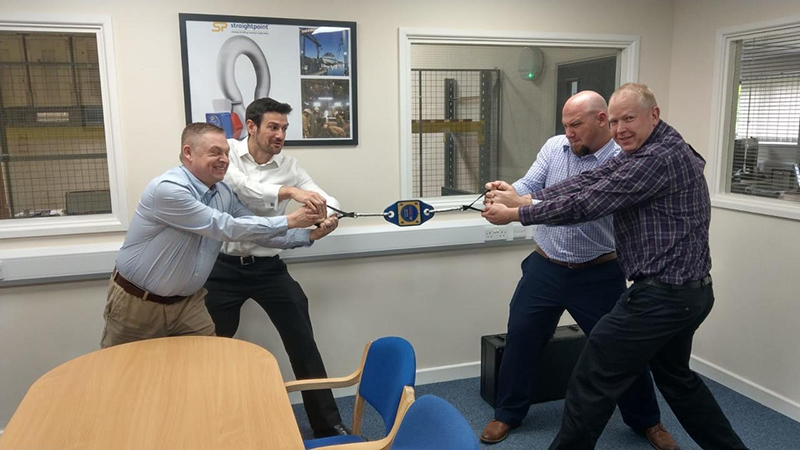All the training in the world can’t replicate game time, says David Mullard, business development manager at Straightpoint.
In cricket they call it time in the middle. To use a more international sporting analogy, in football (soccer) they refer to it as match fitness. In other sports, coaches and players talk about game time. Regardless, it all means the same thing: it’s an acceptance that the only way to really sharpen skills and reach your potential is to put yourself to the test and dive into the deep end. Practice, training, rehearsals, etc. are important—that’s how skills are acquired—but they’ll never stand up to pressure until there’s something on the line. It’s also the acid test of recovery following injury or illness.
I don’t want to overdo the soccer references because I support Wolverhampton Wanderers (our nickname is Wolves) and I’ve got two left feet when it comes to striking the ball, but the beautiful game (cue eye-rolls from many a friend across the pond) serves as a great example to emphasise the main point of this article. In fact, the type of sport is interchangeable. Whatever the shape of ball or size of bat, every great player was once a rookie, novice, youth-team prospect or school kid with talent. How do they one day win individual prizes like the Ballon d’Or or team trophies such as the Jules Rimet or Premier League? Answer: a manager, coach, teacher or mentor encourages them to step up. In other words, they get an opportunity.
Only facing the hardest tackler, fastest pitcher, tallest baller, or biggest puncher can someone learning his or her trade really appreciate what it takes at the highest level. It’s one thing to watch television or create drills in training but it never fully replicates the real thing. That’s why levels are so important in sport; someone excels at school, regional then national level but can’t hack it on the international scene. Or they take the county game by storm but can’t handle the speed or strength of southern area players. For the same reason, so many players come back from long injury lay-offs but break down again when the calf, knee, ankle or glute can’t withstand the extra strain of a match scenario.

No. 10 shirt
It’s remarkable therefore that in business, where the same theories can be applied, we don’t more readily give opportunities to people, especially those on the up-curve of their careers, to experience managerial or senior positions. In fact, there’s a tendency to do the opposite. A CEO is on holiday or a CFO has to take enforced leave due to sickness and people look around the boardroom or C-suite or, worse, source a senior person from outside to cover for them. Whether it is as cover or to oversee specific projects, responsibility should be given to young professionals. It can be demotivating if someone hoping to one day lead a department or regional office, for example, is overlooked when an opportunity arises to give them a taste of more seniority. Conversely, it can be extremely uplifting and rewarding if a company gives an individual a chance to be playmaker—as I can testify.
David Ayling, global business development director for load monitoring solutions and former owner of Straightpoint (SP), aka Mr. Loadlink, recently took something of a sabbatical, which meant more responsibility and burden of leadership was placed upon my shoulders. Alas, I’m too old to be considered a young prospect, and I’ve been around the SP boardroom for a while, but the case study remains valid. Not only did the summer months give him a chance to take a much-needed break but the team—and me—got a taste of what life would be like without Mr. Loadlink at the helm, which was incredibly enlightening. It takes a good leader to create a company that can thrive in their absence but, truth is, it had never before been put to the test. Ok, we’re now in the capable hands of Crosby ownership, but the Havant, Hampshire facility is a centre of excellence in its own right and we kept a lid on it. We scored some goals too. Phew!

I’ll be honest, there were things I could have done differently but I only know that because it was a real experience. Only by seeing the consequences of decisions was it possible to learn and hone my leadership skills. It’s a big deal when the buck stops with you, and it takes practice. There are so many people in this industry and other sectors who’ve stepped into such roles upon retirement of business owners and managers, without the experience to make a success of it. Could some of these short tenures we hear about have been more fruitful had that individual had a better taste of seniority throughout their career? I certainly think so.
Synchronised swimming
Maybe my earlier “deep end” comment might have been misleading as it implies someone is left alone to sink or swim. In reality, only when a team duly supports someone stepping into a leadership position can they make it work. We all know the practice of setting a person up to fail and that would be true of anyone left in a CEO’s office with the door slammed behind them. You might as well grease the bottom of their shoes and ask them to walk down a carpeted staircase. I’m indebted to a number of individuals and departments, which I’ll come to, without whom the game would’ve passed me by. I’d have been a passenger. In soccer terms, I’d have been taking up good positions outside the box but nobody would’ve passed me the ball.
“So much for Magic Mullard,” the fans would scoff.
I enjoyed working with the marketing and inside sales teams in particular. I admire the creativity of these departments, who constantly need to generate fresh, exciting content to support Crosby external sales teams and engage target audiences. I’d encourage all businesses to look carefully at how closely aligned sales and marketing are especially in a climate where the latter is becoming more and more important as prospective clients conduct more research than ever, before even encountering a salesperson. There was a time when the phone ringing or door knocking was the first point of contact between supplier and consumer. That’s changed, principally because of the internet, meaning isolated sales teams are swimming against the tide.
(Perhaps sales-marketing alignment can be a project for an interim leader at your company.)
Leaders must continue to learn. While they might be more frequently looked to as professor or teacher, it’s important that an aspiring manager maintains a sponge-like state, where they take information and knowledge from those around them. To think, “Ok, I’m the boss now, forget about listening to other people,” would be foolhardy. Peter McGreal, former financial director at SP, recently left us after 18 years with the business and I’m grateful for the expertise he shared with me recently and historically about his wheelhouse. He’s done a huge amount of work behind the scenes and has shaped some game-changing strategies. Peter was the yang to Mr. Loadlink’s yin in a great example of business savvy and dualism.

Showboating
As another conference and events season gets underway, I write from Offshore Europe here in Aberdeen, where August had barely finished and we were setting up the exhibit for the 3-6 September show. It’s appreciable how much change SP has been through since the last edition of the event; now part of the Crosby Group, we attended alongside Gunnebo Industries, which was also recently acquired by the largest lifting and rigging hardware company in the world. We stay offshore in Amsterdam, Holland next month, where Offshore Energy takes place 7-9 October. The Speedy Expo follows and that’s all without flicking too many pages forward in my diary.
I’m honoured to represent the company at this year’s Heavy Lift Awards, where SP has been shortlisted in the innovation category. Winners will be named by Heavy Lift & Project Forwarding International (HLPFI) magazine at the Hilton Old Town in Antwerp, Belgium on 15 October. Evolution is evident in our Bluetooth-enabled load cell range and accompanying app, which have been highlighted as the products that separated us from other entrants. In closing therefore another SP team worth referencing is our highly active and progressive research and development department; those guys can take much of the credit for such recognition by one of the industry’s leading magazines.

Mr. Loadlink’s return has surely given everyone a lift, as though a star player has returned but, as my time in his seat proved, we’re not a one-man team. I don’t think any winning side ever was.
Dave Mullard
Business Development Manager, Straightpoint
dmullard@straightpoint.com




